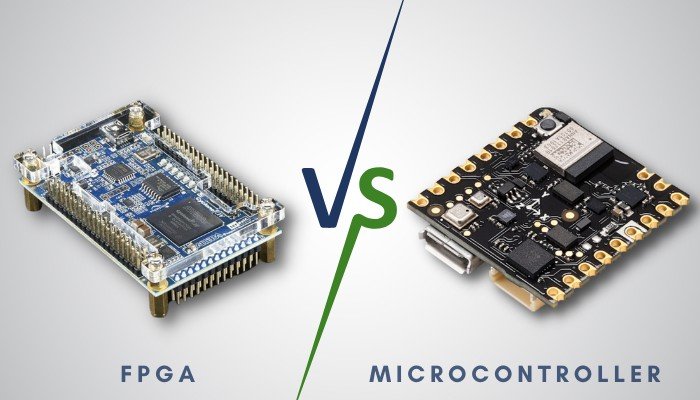Time: 2025-05-19 11:34:43View:
Here's a clear comparison between FPGA (Field Programmable Gate Array) and Microcontroller (MCU), including the advantages and disadvantages of FPGAs when compared to MCUs.

| Feature | FPGA | Microcontroller (MCU) |
|---|---|---|
| Architecture | Reconfigurable digital logic blocks | Fixed CPU + peripherals |
| Programming Style | Hardware description (e.g., VHDL/Verilog) | C/C++ or Assembly |
| Execution | Parallel hardware execution | Sequential instruction execution |
| Flexibility | Highly customizable hardware | Fixed-function hardware |
| Performance | Deterministic, ultra-fast logic | Depends on clock, slower than FPGA |
Parallel Processing:
Multiple operations can run truly in parallel in hardware.
Ultra Low-Latency:
No software overhead; logic runs in hardware at wire-speed.
Hardware Customization:
Tailor logic to exact needs (e.g., custom protocols, filters).
High-Speed Data Processing:
Great for signal processing, video, encryption, and real-time systems.
Reconfigurable:
Can be updated and reprogrammed with new hardware logic.
Security:
Custom logic is hard to reverse-engineer compared to software.
Complexity:
Requires knowledge of HDL (Verilog/VHDL) and hardware design concepts.
Cost:
FPGAs are more expensive (chip cost + toolchain/licensing).
Power Consumption:
Typically higher than MCUs, especially for large designs.
Longer Development Time:
Simulation, synthesis, and timing closure are time-consuming.
Resource Limits:
Limited by number of logic cells and memory blocks.
Slower Clock Speeds:
Clock speeds are typically lower than high-performance MCUs, but parallelism makes up for it.
| Use Case | FPGA | MCU |
|---|---|---|
| Real-time signal/image processing | ✅ Ideal | ❌ Limited |
| Simple control tasks (e.g., sensor reading, display control) | ❌ Overkill | ✅ Perfect fit |
| Custom communication protocols | ✅ Highly efficient | ❌ Difficult to implement |
| Low-power battery devices | ❌ High power | ✅ Optimized for low power |
| Rapid prototyping, hobby use | ❌ Complex | ✅ Easier and faster |
| FPGA | MCU |
|---|---|
| Hardware-defined, parallel logic | Software-controlled, sequential logic |
| Flexible but complex | Easy to use but limited flexibility |
| Ideal for performance-critical apps | Ideal for control-oriented tasks |